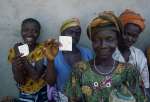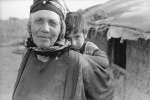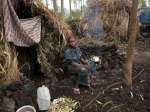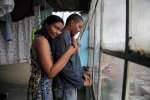Home > Search
Also on this site
- Guiding Principles
- Sudan country page
- Egypt country page
- 2009 Dialogue: Related Themes
- Liberia country page
- Strengthening Protection Capacity
- Livelihoods
- Africa regional page
- Latin America regional page
- South-West Asia regional page
- Strengthening Protection Capacity Project Tanzania
- Water, Sanitation and Hygiene (WASH)
- Strengthening Protection Capacity Project Thailand
- Capacity Building
- Cameroon country page
- Resources within UNHCR
- South Asia regional page
- Strategic Goals and Objectives
- Democratic Republic of the Congo country page
- Kenya country page
- Thailand country page
- United Republic of Tanzania country page
- Uganda country page
- Central Africa and the Great Lakes regional page
- Bosnia and Herzegovina country page
- Yemen country page
- Syrian Arab Republic country page
- Access to Microfinance Services
- Alternatives to Camps
- Microfinance in Short
- Afghan Solutions Strategy
- Urban Refugees and Livelihoods
- Chad country page
- Women
- Eastern Europe regional page
- Sharjah Conference on Refugee Children
- Energy
- Asia and the Pacific regional page
- Ministerial Pledging Conference on Somali Refugees
- Brazil Plan of Action – One year of Implementation
Livelihoods
We help refugees, refugee returnees and internally displaced people tap their potential and build a platform for a better future.
 Livelihoods in the News
Livelihoods in the News
- Stitch by stitch towards greater protection in northern Myanmar
- Survey of Afghan refugees in Pakistan will help plot future course
- From captive to budding entrepreneur with a boost from UNHCR
- Refugee women share concerns in Zambia dialogue
- Women's training project in northern Myanmar generates income and goodwill
 Livelihoods Success Stories
Livelihoods Success Stories
- Yemen: Technical and vocational education opportunities for refugees. A UNHCR Livelihoods Project
- Afghanistan: Animal Husbandry for Vulnerable Individuals: Success Story, A UNHCR Livelihoods Project
- Afghanistan: Beekeeping Training and Honey Production: Success Story, A UNHCR Livelihoods Project
- Afghanistan: Fish Farming and Food-for-Work: Success Story, A UNHCR Livelihoods Project
- Afghanistan: Vocational training and literacy for those with disabilities: Success Story, A UNHCR Livelihoods Project
Urban Refugees and Livelihoods
UNHCR's urban livelihoods initiative aims at helping refugees face the challenges they encounter in cities and towns.
 Practical Guidelines
Practical Guidelines
- Operational Guidelines on the Minimum Criteria for Livelihoods Programming
- Livelihood Programming in UNHCR: Operational Guidelines
- Investing in Solutions: A Practical Guide for the Use of Microfinance in UNHCR operations
- Promoting Livelihoods and Self-reliance: Operational Guidance on Refugee Protection and Solutions in Urban Areas
Global Strategy for Livelihoods
A UNHCR Strategy 2014-2018
Access to Microfinance Services
Microfinance is one element in the facilitation of refugee self-sufficiency and the promotion of sustainable livelihoods.
Community Technology Access
A programme that allows refugees to use computer technology for education as well as business and livelihoods purposes.
2009 Dialogue: Related Themes
The following links are intended to enable participants to understand and navigate through the complex topic of challenges to persons of concern in cities and urban settings.
Refugee Women
Women and girls make up about 50 percent of the world's refugee population, and they are clearly the most vulnerable. At the same time, it is the women who carry out the crucial tasks in refugee camps – caring for their children, participating in self-development projects, and keeping their uprooted families together.
To honour them and to draw attention to their plight, the High Commissioner for Refugees decided to dedicate World Refugee Day on June 20, 2002, to women refugees.
The photographs in this gallery show some of the many roles uprooted women play around the world. They vividly portray a wide range of emotions, from the determination of Macedonian mothers taking their children home from Kosovo and the hope of Sierra Leonean girls in a Guinean camp, to the tears of joy from two reunited sisters. Most importantly, they bring to life the tremendous human dignity and courage of women refugees even in the most difficult of circumstances.
Refugee Women
Silent Success
Despite being chased from their homes in the Central African Republic and losing their livelihoods, Mbororo refugees have survived by embracing a new way of life in neighbouring Cameroon.
The Mbororo, a tribe of nomadic cattle herders from Central African Republic, started fleeing their villages in waves in 2005, citing insecurity as well as relentless targeting by rebel groups and bandits who steal their cattle and kidnap women and children for ransom.
They arrived in the East and Adamaoua provinces of Cameroon with nothing. Though impoverished, the host community welcomed the new arrivals and shared their scant resources. Despite this generosity, many refugees died of starvation or untreated illness.
Help arrived in 2007, when UNHCR and partner agencies began registering refugees, distributing food, digging and rehabilitating wells as well as building and supplying medical clinics and schools, which benefit refugees and the local community and promote harmony between them. The Mbororo were eager to learn a new trade and set up farming cooperatives. Though success didn't come immediately, many now make a living from their crops.
Mbororo refugees continue to arrive in Central African Republic - an average of 50 per month. The long-term goal is to increase refugees' self-reliance and reduce their dependency on humanitarian aid.
Silent Success
International Women's Day 2013
Gender equality remains a distant goal for many women and girls around the world, particularly those who are forcibly displaced or stateless. Multiple forms of discrimination hamper their enjoyment of basic rights: sexual and gender-based violence persists in brutal forms, girls and women struggle to access education and livelihoods opportunities, and women's voices are often powerless to influence decisions that affect their lives. Displaced women often end up alone, or as single parents, battling to make ends meet. Girls who become separated or lose their families during conflict are especially vulnerable to abuse.
On International Women's Day, UNHCR reaffirms its commitment to fight for women's empowerment and gender equality. In all regions of the world we are working to support refugee women's participation and leadership in camp committees and community structures, so they can assume greater control over their lives. We have also intensified our efforts to prevent and respond to sexual and gender-based violence, with a focus on emergencies, including by improving access to justice for survivors. Significantly, we are increasingly working with men and boys, in addition to women and girls, to bring an end to dangerous cycles of violence and promote gender equality.
These photographs pay tribute to forcibly displaced women and girls around the world. They include images of women and girls from some of today's major displacement crises, including Syria, Democratic Republic of the Congo, Mali and Sudan.
International Women's Day 2013


































































